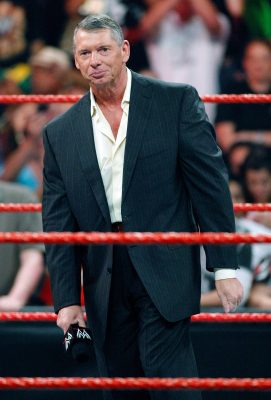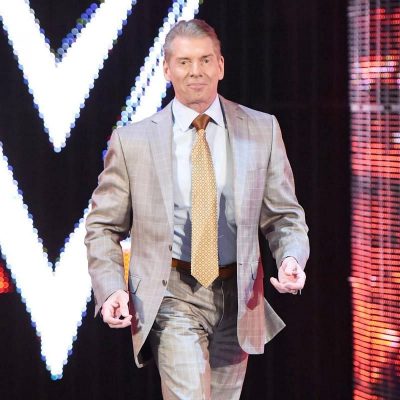When Did Vince McMahon Stop Wrestling?
Many fans of professional wrestling have wondered about the exact moment when Vince McMahon, the chairman and CEO of WWE, stopped stepping into the squared circle himself. McMahon, known for his larger-than-life personality and involvement in various storylines over the years, has had a long and storied career both in front of and behind the camera.
The Early Years

Vince McMahon, born on August 24, 1945, grew up in a family deeply rooted in the wrestling business. His father, Vincent J. McMahon, was a prominent promoter and owner of Capitol Wrestling Corporation (later renamed World Wrestling Federation or WWF). Vince McMahon Sr., as he was commonly known, passed down his passion for wrestling to his son.
Vince Jr., as he is often referred to, made his first appearance inside the ring as an announcer during the late 1960s. While he didn’t wrestle at that time, he played an essential role in commentary and interviews for matches that took place under his father’s promotion.
Taking Center Stage

It wasn’t until 1999 that Vince McMahon actively participated as an in-ring performer. This decision was part of a storyline called “Mr. McMahon” character where he portrayed a villainous authority figure who constantly clashed with popular wrestlers.
The Attitude Era:
During what is now known as the “Attitude Era,” which spanned from the late ’90s to early 2000s, Vince McMahon’s character became one of the most despised villains in professional wrestling history. He engaged in numerous memorable feuds with icons like Stone Cold Steve Austin and The Rock.
The End of In-Ring Career:
As the years went by, McMahon’s in-ring appearances became less frequent. The demanding responsibilities of running a global wrestling empire took precedence over his own physical involvement in matches. While he continued to make sporadic appearances inside the ring for special occasions or storyline purposes, it can be said that McMahon effectively stopped wrestling as a regular performer after the early 2000s.
Focus on Business
After stepping away from active wrestling, Vince McMahon focused on expanding WWE as a global entertainment brand. He played a pivotal role in transforming the company into a publicly traded entity and expanding its reach beyond professional wrestling into various forms of media.
The XFL:
In 2001, McMahon ventured into professional football by launching the XFL, an alternative football league. However, due to various reasons including financial challenges and lack of viewership, the XFL ceased operations after just one season. In 2020, McMahon relaunched the XFL but once again faced challenges due to the COVID-19 pandemic leading to its eventual bankruptcy.
A Continuing Presence
Although Vince McMahon has primarily focused on his role as WWE’s chairman and CEO since stepping away from regular in-ring competition, he occasionally makes appearances on WWE programming. These appearances often involve him asserting his authority or involvement in major storylines.
Legacy and Impact:
Vince McMahon’s contributions to professional wrestling cannot be overstated. His innovative approach to storytelling, larger-than-life characters, and business acumen have shaped WWE into a global phenomenon. While he may have stopped wrestling regularly years ago, his legacy continues to reverberate throughout the industry.
- Key Takeaways:
- Vince McMahon made his first appearance in wrestling as an announcer during the late 1960s.
- He actively wrestled as the “Mr. McMahon” character during the Attitude Era in the late ’90s and early 2000s.
- McMahon’s in-ring appearances became less frequent as his focus shifted towards running WWE as a global entertainment brand.
- He occasionally appears on WWE programming for special occasions or major storylines, but his regular in-ring career effectively ended after the early 2000s.
In conclusion, Vince McMahon’s wrestling career evolved from an announcer to a prominent villainous authority figure. While he may have stopped wrestling regularly after the early 2000s, his impact on the industry and his lasting presence in WWE continue to shape professional wrestling today.
